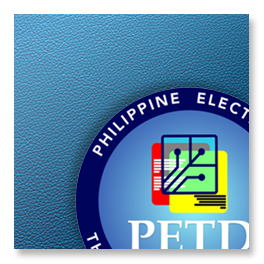Internal Revenue Service and the regulation of religion
Author's Profile
Paul Castronova
brianervinmamaril@gmail.com
Baylor University
Castronova's Works

Internal Revenue Service and the regulation of religion
This study seeks to determine how the Internal Revenue Service influences religion in the United States. Using the theoretical frameworks of organizational ecology and new institutionalism this study examines the assumption that America has an unregulated religious economy. In particular, I look at... Read More

Abstract: This study seeks to determine how the Internal Revenue Service influences religion in the United States. Using the theoretical frameworks of organizational ecology and new institutionalism this study examines the assumption that America has an unregulated religious economy. In particular, I look at the sociological impact of defining a 'church' for tax-exempt purposes. Given the constitutional constraints of the First Amendment, the IRS is one the few federal agencies that produces definitive work on religion in United States. In the 1970s, attempting to stop increasing abuse of church exemptions as a form of tax evasion, the IRS developed policies that have impacted countless religions. Using historical records and current organizational theories this study shows that though the policies may seem impartial, in reality, they impede the development of new, marginal, and foreign religions. I conclude by proposing an empirical analysis of these claims and a new source of data on organizational aspects of new religions.
Related Resources
Author's Profile
Adam Trybus PhD
brianervinmamaril@gmail.com
Baylor University
Trybus' Works

An Axiom System for a Spatial Logic with Convexity
A spatial logic is any formal language with geometric interpretation. Research on region-based spatial logics, where variables are set to range over certain subsets of geometric space, have been investigated recently within the qualitative spatial reasoning paradigm in AI. We axiomatised the theory... Read More

ETD Test 20
ETD Test 20
A spatial logic is any formal language with geometric interpretation. Research on region-based spatial logics, where variables are set to range over certain subsets of geometric space, have been investigated recently within the qualitative spatial reasoning paradigm in AI. We axiomatised the theory...
Author's Profile
Koushik Pal PhD
brianervinmamaril@gmail.com
Baylor University
Pal's Works

Uniform Theory of Multiplicative Valued Difference Fields
The first part of the thesis concerns the existence of model companions of certain unstable theories with automorphisms. Let T be a first-order theory with the strict order property. According to Kikyo and Shelah's theorem, the theory of models of T with a generic automorphism does not have a model... Read More





























































































































































































































































































































































































































































































































































































































































































































































































































































































































































































































































































































































































































































































































































































































































































































































































































































































































































































































































































































































































































































































































































































































































































































































































































































































































































































































































































































































































































































































































































































































































































































































































































































































































































































































































































































































































































































































































































































































































































































































































































































































































































































































































































































































































































































































































































































































































































































































































































































































































































































































































































































































































































































































































































































































































































































































































































































































































































































































































































































































































































































































































































































































































































































































































































































































































































































































































































































































































































































































































































































































































































































































































































































































































































































































































The first part of the thesis concerns the existence of model companions of certain unstable theories with automorphisms. Let T be a first-order theory with the strict order property. According to Kikyo and Shelah's theorem, the theory of models of T with a generic automorphism does not have a model...